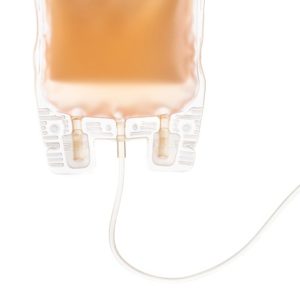Data from a phase 1, open-label, multi-center safety trial of lyophilized platelets were recently presented at the 2019 AABB Annual Meeting in San Antonio, Texas. Thrombosomes® (lyophilized platelets) are prepared from a pool of apheresis-derived human platelet units, pathogen-reduced with heat sterilization, and freeze-dried in the presence of trehalose (a naturally-derived simple sugar) and other small molecules which stabilize their structure until reconstruction. In order to test the safety of thrombosomes, three cohorts of eight mildly bleeding thrombocytopenic patients (WHO grades 1-2) were given escalating doses of thrombosomes—from half to two-fold the lowest effective dose (as determined in animal studies). Although 19/24 patients experienced some form of a treatment-emergent adverse event during the study, only one of these events were found to be related to thrombosomes. Additionally, no immediate treatment-related adverse events were observed. Thrombosomes have several potential advantages compared to room-temperature stored platelets: they are stable at room temperature up to 24-36 months, rehydrate quickly, and could be stockpiled or shipped to areas with limited platelet availability. Although thrombosome infusion may appear to be safe and feasible, larger studies are needed, and the homeostatic effects of thrombosomes must be examined further.
Reference:
Cancelas Perez JA, Ohanian M, Davenport R, Pullarkat V, et al. Abstract PL2-MN4-32: A phase 1, open-label, multicenter, dose escalation safety trial of lyophilized platelets in bleeding thrombocytopenic patients. Presented at AABB Annual Meeting; 2019 Oct 19-22; San Antonio, TX.

